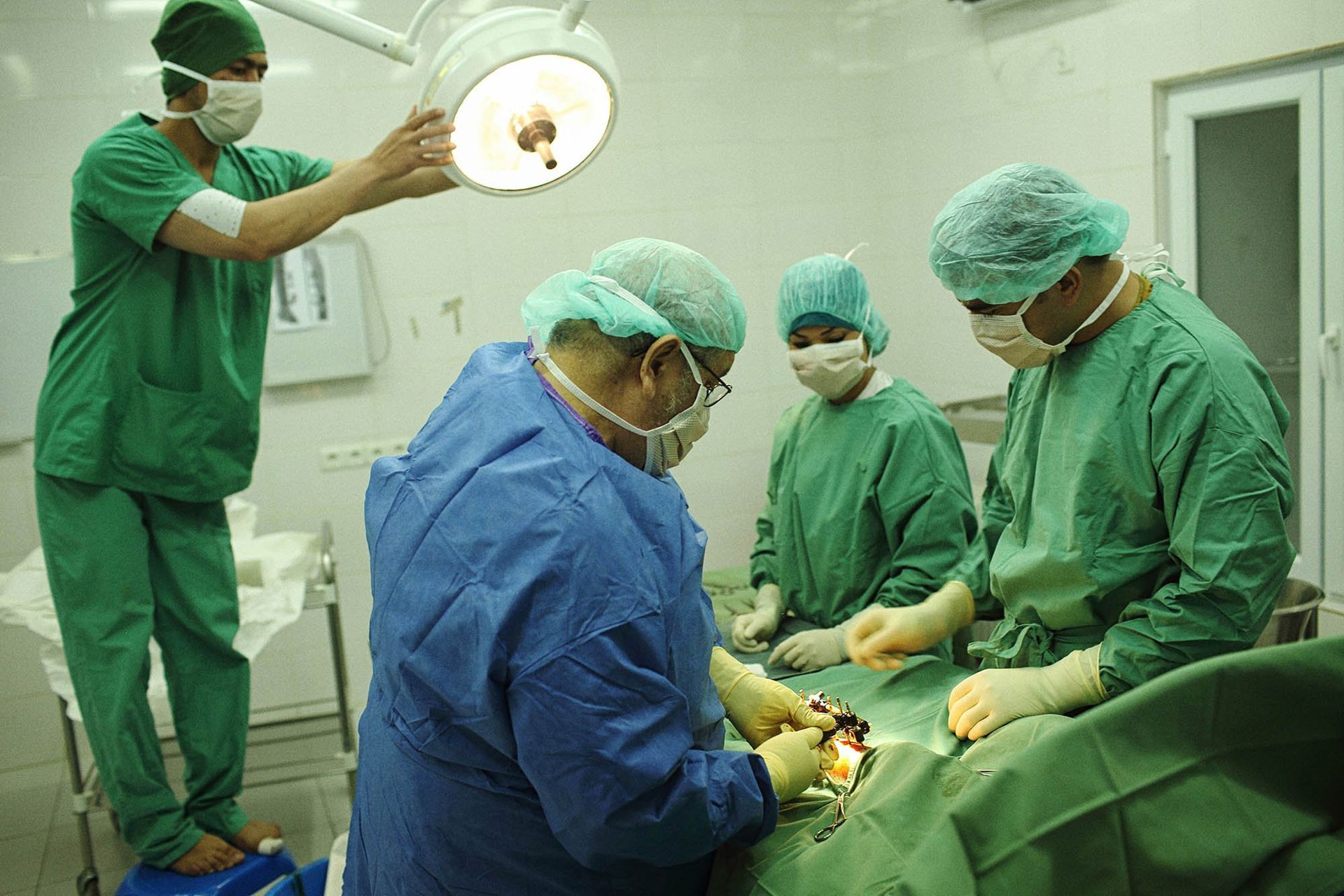Médecins Sans Frontières (MSF) is alarmed by the decision of the Humanitarian Committee of the self-proclaimed Lugansk People’s Republic to refuse permission for MSF to provide critical medical and humanitarian assistance in Lugansk. MSF is extremely concerned that this will deprive vulnerable people in Lugansk of access to essential healthcare and medicines.
“We find the decision unacceptable given the significant medical and humanitarian needs of people affected by the ongoing conflict in Lugansk,” says Dr Bart Janssens, MSF Director of Operations. “MSF has been one of the few international organisations providing vital assistance in Lugansk for more than a year. We have been dedicated to supporting doctors and nurses to be able to carry on their crucial work. As in all conflict zones where MSF works, our only aim has been to help vulnerable people, no matter their political beliefs or which side of the frontline they find themselves on.”
Since June 2014, MSF has supported 109 health and social facilities in Lugansk with essential medicines, medical supplies, equipment, hygiene materials and relief items. Through mobile clinics in 35 locations, MSF teams have provided more than 42,000 primary healthcare consultations in conjunction with doctors from the public health service. MSF has donated medicines and medical supplies to treat up to 37,500 people with chronic diseases such as diabetes, hypertension and heart disease, as well as up to 4,900 war-wounded patients during periods of intense fighting. All healthcare and medicines have been given free of charge.
“Due to the conflict, the supply of medicines in Lugansk has been disrupted or cut for the last year and the price of available medicines has increased significantly”, says Janssens. “We see that people struggle to access antibiotics, pain killers, insulin, psychiatric drugs, and medications for chronic illnesses such as high blood pressure, heart disease and kidney disease. We are particularly concerned about people living near the frontline. It is vulnerable people – elderly, sick, disabled and displaced – who suffer most. We are deeply upset that we are not allowed to continue helping them, especially with many doctors and nurses having left frontline areas and with the coming winter.”
All MSF’s activities, including the transportation, storage and distribution of medicines to health facilities, have been coordinated with, and regularly reported to the health authorities in Lugansk. Following the decision of the Humanitarian Committee, MSF has closed its office in Lugansk and no longer has any staff present in the area under LPR authority. Before leaving, MSF has donated its remaining stock of medicines for distribution to health facilities that urgently need them.
“We have made every effort to be transparent and work in cooperation with the authorities,” says Janssens. “We are therefore greatly disturbed that they have resorted to making false accusations about us in the media and tried to intimidate our team by bringing armed men into the office on multiple occasions in the last two weeks.”
MSF is continuing its work on both sides of the frontline throughout the east of the country, including in the area under the authority of the self-proclaimed Donetsk People’s Republic. Since the beginning of the conflict, MSF has supported more than 350 health facilities on both sides of the frontline with donations of medicines and medical equipment. Since May 2014, MSF teams have provided more than 102,000 primary health care consultations, medical supplies for treating more than 23,000 war-wounded patients, and medicines to treat more than 61,000 patients with chronic diseases. MSF has been running a drug resistant tuberculosis programme in Donetsk region since 2011, currently treating 196 patients with the disease in the penitentiary system.
MSF is an international non-governmental humanitarian organisation dedicated to providing free humanitarian and medical assistance to victims of conflict, natural disasters, epidemics or people excluded from the health care system. MSF was founded in 1971 and provides assistance in more than 60 countries. MSF does not take sides in any conflict, is independent of all political, military and corporate agenda, and provides medical care to people on the basis of need alone, regardless of gender, race, religion or political affiliation. MSF relies only on private donations for its work in Ukraine and does not accept funding from any government.


